
"WE ARE THE EARTH" - JUNE 2021
Let's walk together - Letter June 2021
Hello dear readers!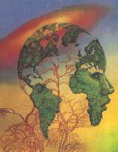
Thank you for your interest in receiving "Let's walk together".
We are the Earth
In the previous letter, we talked about the concept of sustainable development.
Pope Francis in his encyclical Laudato Si' speaks of integral ecology because "everything is linked". This is the heart of the encyclical which "incorporates the specific place of the human being in this world with the reality that surrounds him". This second letter is dedicated to him.
"Since everything is closely interrelated and today's problems call for a vision capable of taking into account every aspect of the global crisis, I suggest that we now consider some elements of an integral ecology, one which clearly respects its human and social dimensions." (§137)
1. The words of the Pope
Some quotes from Laudato Si':
§11: An integral ecology calls for an openness to categories that transcend the language of mathematics or biology, and orient us towards the essence of the human...This conviction has consequences for the opinions that determine our behaviour. If we approach nature and the environment without this openness to wonder and amazement, if we no longer speak the language of fraternity and beauty, in our relationship with the world, our attitudes will be those of masters, the consumer or the pure exploiter of resources, incapable of setting limits to his immediate interests. On the other hand, if we feel intimately united with all that exists, sobriety and concern for protection will spring up spontaneously. The poverty and austerity of St. Francis was not a purely external asceticism, but something more radical, a renunciation of turning reality into a pure object of use and domination.
§49: But today, we cannot help but recognize that a true ecological approach always turns into a social approach, which must integrate justice into environmental discussions, to listen to both the voice of the earth and the voice of the poor.
§82: When nature is viewed solely as a source of profit and interest, this has serious consequences for society as well. The vision of "might is right" has engendered immense inequalities, injustices and violence against the majority of humanity, because resources end up in the hands of the first comer or the most powerful: the winner takes all. The ideal of harmony, justice, fraternity and peace that Jesus proposes is the opposite of such a model.
§91: A sense of deep communion with other beings in nature cannot be real if our hearts lack tenderness, compassion, and concern for other human beings... Everything is connected, so there must be a concern for the environment combined with a sincere love for other human beings, and a constant commitment to resolving the problems of society.
§92: Peace, justice and the care of creation are three closely related themes... Everything is connected, and as human beings we are all united as brothers and sisters in a wonderful pilgrimage, interwoven by the love that God has for each of his creatures and which also unites us, with tender affection, with brother sun, sister moon, sister river and mother earth.
§139: When we speak of "environment", we are referring in particular to a relationship, that between nature and the society that inhabits it... We are included in it (nature), we are a part of it and we are entangled with it. (...) It is fundamental to look for integral solutions that take into account the interactions of natural systems with each other and with social systems.
§161: The pace of consumption, waste, and environmental change has exceeded the planet's possibilities, to the point where the present unsustainable lifestyle can only lead to disaster... The mitigation of the effects of the current imbalance depends on what we do in the immediate future, especially if we think of the responsibility that those who will have to bear the worst consequences will attribute to us.
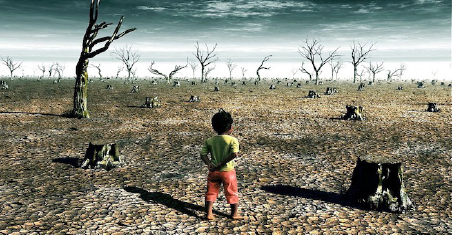
The entire Chapter 4 speaks of "integral ecology". Integral ecology means considering the interdependence that unites living beings; the complexity of all the interactions that unite us and make us interdependent on those with whom we live, human or not; with a vision of the human being at the centre of creation.
In this chapter, the Pope speaks of environmental, economic, social and cultural ecology, the pillars mentioned in our first letter, to arrive at the notion of the common good and justice between generations. He invites us to orientate our lives, to make choices in solidarity and above all to act in an ecological conversion that we will address in our third letter. We are therefore directly involved.
2. The reflections of Elena Lasida
Elena Lasida, who was born in Brazil, is an economist, a professor at the Institut Catholique in Paris and a theologian. She is also in charge of the "Ecology and Society" mission of the French Bishops' Conference, and is strongly involved in the "Green Church" movement in France.
We have extracted some reflections from her speeches and articles on Laudato Si. For her, integral ecology is a "mental revolution". We cannot understand ecology independently from our relationship with the human being, with God, with institutions, with culture, with politics and with the economy.
This new ecological culture involves
3 founding principles:
- Everything is connected: there is a structural link between the relationship to the earth, to oneself, to others, to God. The Pope calls on human beings to place themselves in communion with all other living beings.
- Everything is given: the earth and all its fruits are a freely received gift from God that should benefit all, not just those who can appropriate it. It should lead to an attitude of "gratitude and graciousness".
- Everything is fragile: the fragility of creation and of human life must be a call to protection and to human creativity to mark "a new beginning". No creation is possible in the fullness of time, no new life without the crossing of death. Fragility is a source of life.
These three principles become the central points around which living together is woven. Thinking of individual success as something that generates links, conceiving of commercial exchange in such a way as to make free exchange possible, aiming for a solidity that is built thanks to fragility and not against it.
3 convictions :
- The whole is greater than the part: the whole cannot be reduced to the sum of the parts. It is what links the parts together that makes the whole. The particular must always be put in perspective of the whole and the whole must be rooted in each particular situation.
- Unity is superior to conflict: unity based on the "communion" of differences and not their suppression. Unity does not erase the particularities of each component, it puts them in dialogue. Unity is not uniformity.
- Time is superior to space: because everything is fragile. An invitation to initiate processes rather than owning spaces. The priority given to the short term should be replaced by the lasting result, the perfect forecast by the welcome of the unexpected, the desire to possess in order to better master the setting in motion.
 3 calls (interpellations):
3 calls (interpellations):
- Revisit the notion of autonomy: what makes one autonomous is not independence (the fact of not depending on anyone) but interdependence or the fact of always having something to give or receive from others, articulating the interests of others with my own.
- Questioning the right to property: the great foundation of modern societies
- Questioning what is meant by security: security is no longer thought of as a control to reduce the unexpected to a minimum, but as creating the conditions to welcome the unexpected.
Reality invites us to live the ecological crisis as a place of revelation and not a problem to be solved, a new form of God's presence in history.
3. The intuitions of Father Cestac
What did Father Cestac say and do in his time?
The words of Pope Francis, the analysis of Elena Lasida, have great echoes in the thinking of Father Cestac, in the history of the Refuge and of the people he received.
Ever since 1836, when he received the first orphan girls in Bayonne, he wrote to the Mayor of Bayonne: "I am horrified to think that these poor unfortunate girls (he was talking about orphan girls at the age of 15 or 16) become the object of infamous industry for terrible people, and sometimes for an unnatural mother. It is so, however, and I myself have only been able to rescue victims from inevitable immolations at the cost of great sacrifice".
The Servant of God clearly sets out the new social problem he is going to solve, one of his "divine foolishnesses" according to Canon Daranatz:
In a city of navy, trade garrison and passage the unfortunate public girls "...withered, stigmatized with the seal of ignominy, disowned by their families, repulsed from everywhere and forced to repress in their souls any feeling of return any idea of repentance. It is dreadful to think of, and my desolate soul thought seriously of coming to the aid of these poor but very unfortunate creatures..." (letter of 19/2/1839).
"After having meditated at length on the most suitable means of bringing back these poor unfortunate girls and ensuring their perseverance, I became convinced that in our regions, the young girls of the Basque country, as well as the Béarnaise girls of a lively, exalted character, and dominated by an irresistible need for independence, would not easily suffer absolute seclusion, and that it would be better to apply them to agriculture, gardening, washing, and generally to all the work of the countryside." (letter of 2/8/1839).
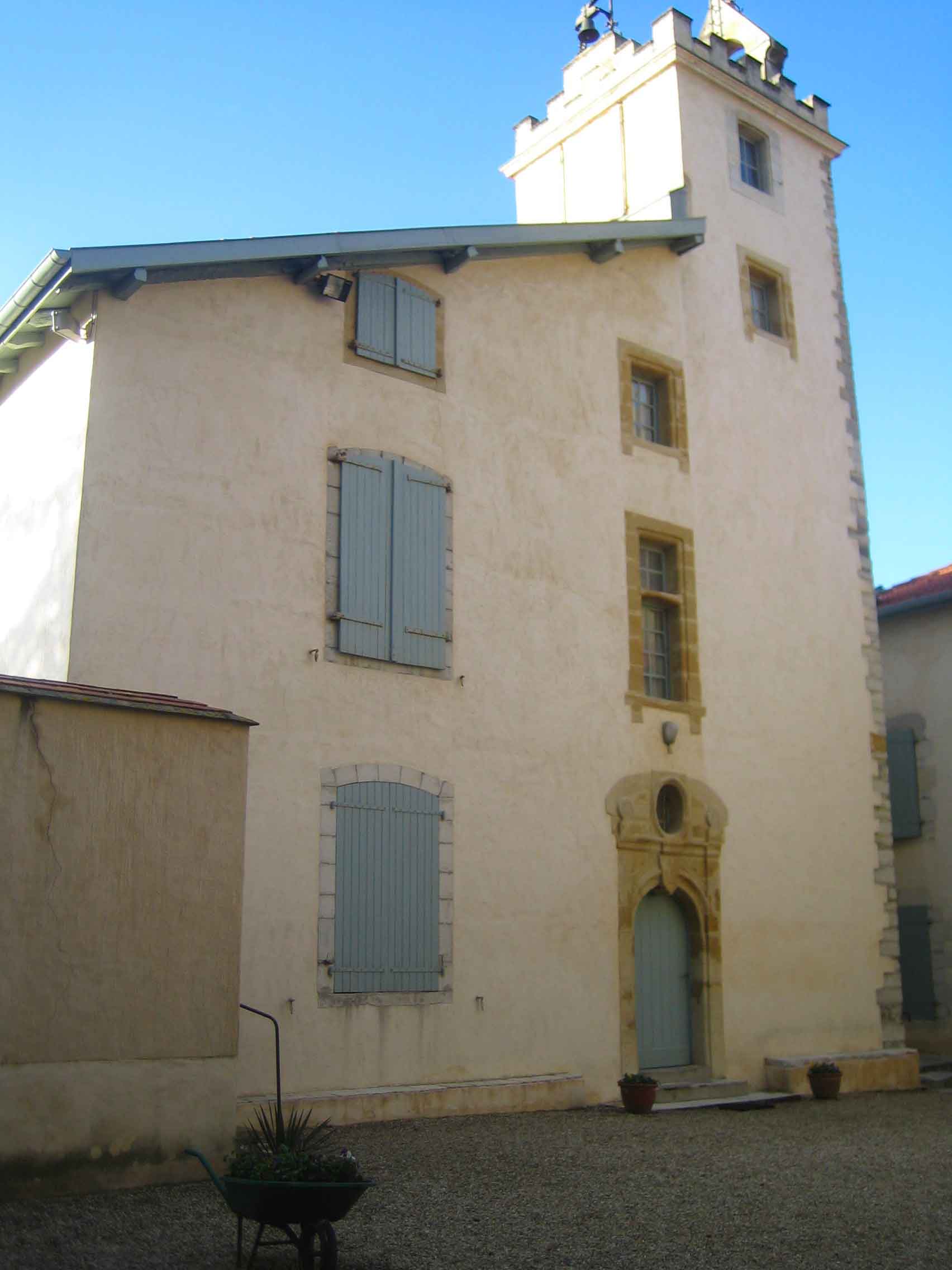 According to Father Cestac the reception must be done according to 3 principles: gratuity, freedom and good will; he speaks of "voluntary penitence asylum". Not being able to live exclusively on charity, faced with the growing number of penitents and the need to give these young girls a sense of dignity through work, he buys the agricultural estate of Chateauneuf in Anglet. In 1839, he welcomed the first young girls there, supervised by collaborators including Gracieuse Bodin. This was to become Notre Dame du Refuge.
According to Father Cestac the reception must be done according to 3 principles: gratuity, freedom and good will; he speaks of "voluntary penitence asylum". Not being able to live exclusively on charity, faced with the growing number of penitents and the need to give these young girls a sense of dignity through work, he buys the agricultural estate of Chateauneuf in Anglet. In 1839, he welcomed the first young girls there, supervised by collaborators including Gracieuse Bodin. This was to become Notre Dame du Refuge.
"The house will have resources that I hope will make it independent of public charity."
Through respect for nature and respect for the human being, he restores the taste for living according to the principle of gratuity and freedom to the people he welcomes, who are excluded from society.
Death and redemption, a new beginning.
Nature must be respected: "in an agricultural institution wisely managed...one finds continuous and ever-renewing resources".
"From an infertile soil, rebellious to all cultivation, careless and temperamental like the ocean that threw it, like it floating at the mercy of the wind, arched to the depths of its entrails by the sun's rays: from this soil, increased by successive acquisitions, soon sprang up in number and strength, larger and larger vegetable plants, fruit trees, fields, and woods." (Schneider, the first biographer of Fr. Cestac)
For Fr. Cestac, agriculture and nature are a means of sustenance and redemption, it is the nourishing earth in every sense of the word which nourishes body and soul. "But the sands fertilized by work, prayers and tears have become a touching oasis where one sees majestic trees and beautiful harvests: sublime and silent preaching which unites with the imposing sound of the roaring sea as if announcing at the same time the nothingness of man and the all-powerful nature of God." (27/6/1862)
For a local newspaper: "Mr Cestac couldn't look at a farm as anything other than a material resource, as a means of moralization, but also a means of helping the unfortunate and a means of serving the interests of his country."
In its meeting of 30 May 1852, the municipal council of Anglet declared, with regard to the Notre Dame du Refuge house, "that this house is destined to render the greatest services to the populations of the countryside and that it spreads the most precious benefits around it"..."by its model cultivation and the abundance and quality of its products, it tends to improve agriculture and to spread the best methods"... "by its bold attempts in the cultivation of the sands bordering the ocean and the astonishing successes it has achieved, it tends to create new resources and to give value to land previously considered infertile"..."For all these reasons, we think that this establishment is infinitely valuable..."
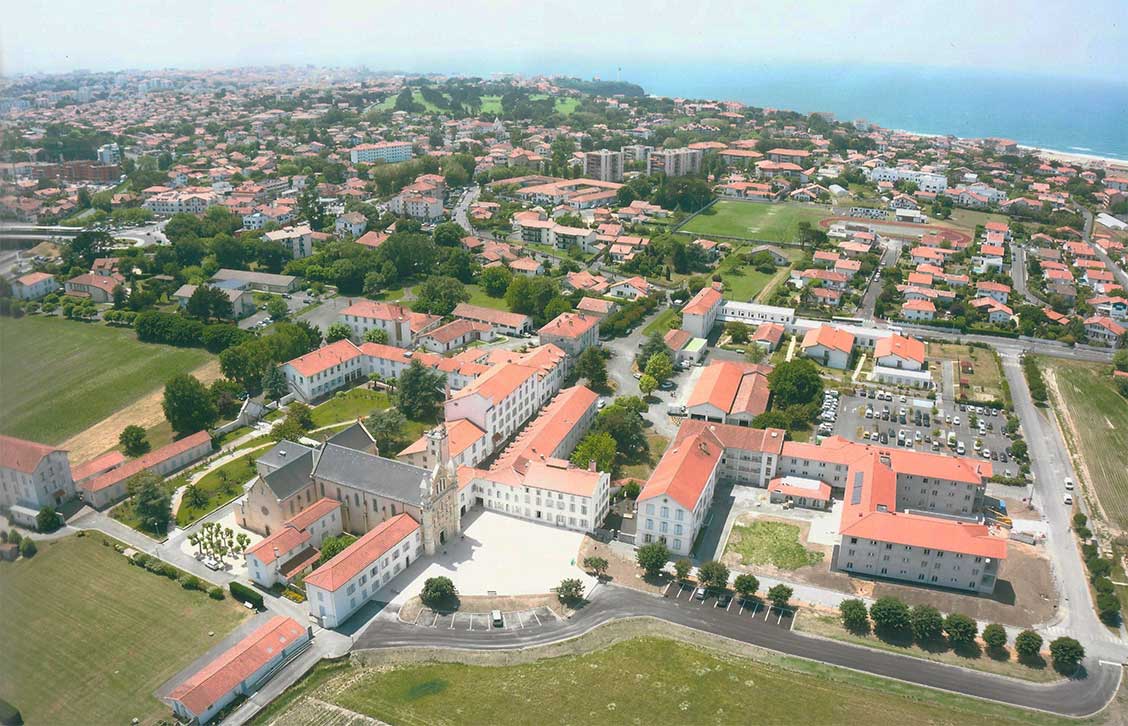
We propose a comparative analysis of Father Cestac's thinking and that of Pope Francis:
Louis-Edouard Cestac (Letter to Jules Labat, Mayor of Bayonne, about 1855) | Pope Francis |
| "I have fulfilled a duty of conscience because for the priest particularly, who is the man of God and the man of the people, whatever good is to be done imposes a sacred duty whenever this good is possible..." | Love of society and commitment to the common good is an excellent form of charity. |
"There is so much carelessness among men. There is a sad laziness in them which numbs them and paralyses them to the point of selfishness." | An integral ecology is also made up of simple daily gestures by which we break the logic of violence, exploitation and selfishness. |
"I am convinced that this unlogical, anti-providential state will have to stop and before long. It will be understood that it is senseless to complain of the scarcity of substances and to ignore a sure and easy way to increase them. One will come to understand the plan of divine wisdom in the governance of the world and will enter into that admirable order which requires that the man who feeds on the products of the earth, gives back to the earth which demands them to produce new plants, that which he cannot use by himself, which it is in his greatest interest to bury in the earth and to keep away from his personal habits." | We need a conversion that unites us all, because the environmental challenge we are facing and its human roots concern and affect us all. Humanity is called to become aware of the need to make changes in lifestyle, production and consumption in order to combat global warming, or at least the human causes that are causing and increasing it. The current lifestyle, because it is unsustainable, can lead to catastrophes. |
4. Reflections and reactions
These reflections inspire us, help us to discover ourselves, move our inner self and call us into action in our communities.
- Why do we come into this world?
- For what do we come to this life?
- What do we work and struggle for?
- What does this earth need us for?
- If this question of meaning is not taken into account, what value will our ecological concerns have?
- What kind of world do we want to leave to those who come after us, to our children?
- How can we apply the principles mentioned by Elena Lasida at our level?
5. Prayer 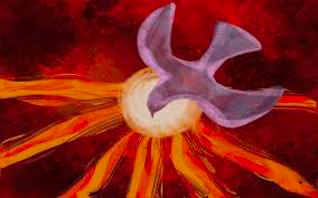
To conclude this letter, we propose to you this prayer for our time, by Cecil Ralendra from Malaysia:
Where families are divided by internal crises
and where children are forced to take to the streets to fight for survival
Where more resources are spent on weapons and acts of destruction
and less attention is paid to your illness or hunger
Come Holy Spirit
Heal our wounds
Renew all creation
Where buying material goods has become an obsession
and where the value of a human being is measured by what he owns
Where the air, the trees and your oceans are assaulted by your pollution
and where greed, blind and mercenary, threatens our environment.
Come Holy Spirit
Heal our wounds
Renew all creation
Where countries are divided by conflict and racism
and where the blood of innocents is spilled by sense less acts of terrorism
Where nations are divided by wars of mutual destruction
and where nuclear holocaust appears ominously on our horizon.
Come Holy Spirit
Heal our wounds
Renew all creation!